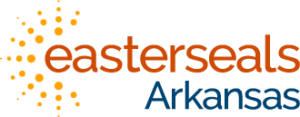
Is your loved one ready for work but unsure how to find the right job? You’re not alone. Many families like yours are asking if today’s disability employment programs actually lead to real jobs. At Easterseals Arkansas, we’ve seen what works—and what doesn’t—when helping people with Down syndrome and other disabilities reach their potential. Let’s look at the programs, the gaps, and the real chances your family member has to succeed at work today.
Key Takeaways:
- Best no-experience jobs: data entry, greeter, clerical, call centers, light sorting
- Part-time disability-friendly jobs: grocery stores, mailrooms, libraries, small shops
- Remote job options: phone support, captioning, data entry, writing, website testing
- Vocational rehab services offer tools, coaching, and help with school or training
- Job coaching helps disabled individuals learn, keep, and grow in jobs
- Federal programs: Schedule A for quicker hiring, Ticket to Work for SSDI/SSI recipients
- Top inclusive employers: Microsoft, Walgreens, IBM; welcoming industries include tech, healthcare, retail
- Tax credits: WOTC (up to $2,400) and Disabled Access Credit (up to $10,000)
- Supported employment for IDD involves coaching, training, and fair wages
- Earnings affect benefits, but some programs protect SSI/SSDI recipients
- Top online job platforms: AbilityJobs, USAJobs (Schedule A), GettingHired, Work Without Limits

Disability Employment Programs Create New Pathways for Adults With Disabilities
In today’s evolving workforce, disability employment programs are playing a vital role in opening doors for adults with disabilities. These thoughtfully designed programs are not only increasing access to meaningful careers but also providing resources that enhance independence, inclusion, and overall well-being. From in-person training to remote job support, these programs are making employment more accessible than ever. As you explore your options, you’ll discover a wide variety of services designed to help individuals with disabilities build skills, find jobs, and thrive in the workplace.
Disability Employment Programs: The Center for Training and Wellness
When it comes to disability employment programs, the Center for Training & Wellness at Easterseals Arkansas stands out as a holistic resource. This center provides adults with disabilities or developmental delays a safe, empowering space to grow. Participants gain practical job skills, enjoy social connections, and receive health support—all in one welcoming location. Because the center supports individuals 18 and older, it acts as a bridge between school-based programs and adult independence.
Services include:
- Occupational empowerment: Personalized job training and placement
- Holistic therapy options: Includes speech and physical therapy
- Daily living skills training: Promotes self-reliance
- Access to nutritious meals
- Technology lab
- Community-based art and volunteer activities
Accessible Job Options Continue to Expand Across Sectors
Thanks to advocacy and expanded programming, more accessible jobs for people with disabilities are available now than ever before. Entry-level roles such as data entry, greeter positions, mailroom tasks, and document scanning are increasingly offered by inclusive employers. These jobs typically require basic reading or typing skills and can often be adapted using tools like screen readers or speech-to-text software. Because these roles demand minimal lifting or physical strain, they suit a wide variety of physical and cognitive needs.
Additionally, many part-time jobs for people with disabilities are available locally. Grocery stores frequently hire baggers or shelf stockers, while libraries may offer clerical or shelving roles. Offices and small businesses often need part-time help with scanning, sorting, or customer service. These positions allow scheduling flexibility, which is especially helpful for those managing medical care or personal responsibilities.
Remote and Home-Based Jobs Offer Flexibility and Control
As technology advances, so do remote job opportunities for people with disabilities.
Work-from-home roles in customer service, data entry, transcription, and website testing are continuously expanding. Consequently, these jobs reduce the need for commuting and provide greater control over lighting, pace, and workspace setup. For those particularly interested in working from home, the Job Accommodation Network (JAN) additionally offers tools and lists of employers committed to accessibility.
Vocational Rehabilitation Services Provide Personalized Job Support
Another powerful resource is your state’s vocational rehabilitation program. These services assist job seekers with disabilities by offering coaching, paid training, and tools such as screen readers or adaptive transportation. After an intake appointment, job seekers receive a custom plan based on their needs and aspirations. Coaches often play a hands-on role, providing step-by-step support in the workplace until individuals gain confidence and independence.
To qualify for these services, a person must have a disability that affects their ability to work and must be willing to pursue employment. Documentation such as medical records or IEPs from school is typically required. You can find your local office by searching for “vocational rehabilitation services near me” or visiting the U.S. Department of Labor’s Office of Disability Employment Policy for a national directory.
Federal Disability Employment Programs Offer Additional Pathways
For those on Social Security benefits, two major federal programs stand out. The Ticket to Work Program provides free employment services for individuals ages 18–64 who receive SSI or SSDI. This program offers coaching, benefits counseling, and connections to training or school—all without risking immediate loss of benefits. Meanwhile, the Schedule A Hiring Authority allows qualified individuals to apply for federal jobs outside the competitive process, provided they have a supporting letter from a qualified professional.
Both programs are designed to build confidence and create gradual pathways to financial independence. Resources like these show that earning income and maintaining benefits can go hand in hand, especially with expert guidance.
Employers and Industries Leading the Way in Inclusive Hiring
Inclusive workplaces are becoming more common, with companies like Microsoft, Walgreens, and IBM at the forefront. For example, Microsoft’s Autism Hiring Program focuses on applicants’ problem-solving abilities rather than traditional interviews. Walgreens built entire warehouse systems to support workers with various needs, and IBM partners with disability employment networks to ensure fair hiring practices.
Industries like retail, healthcare, and technology lead in accessibility. Many now use inclusive hiring strategies, including job descriptions that avoid vague terms and instead list specific skills. These changes help applicants understand the role and feel confident applying.
Employers also benefit from tax credits such as the Work Opportunity Tax Credit (WOTC) and the Disabled Access Credit, which offset the costs of hiring or accommodating disabled workers. These financial incentives encourage businesses to build inclusive teams.
Supported Employment Services Help Job Seekers with Developmental Disabilities
For adults with intellectual or developmental disabilities, supported employment programs offer tailored training and job matching. These services often include on-site coaching, where a job coach helps the employee learn new tasks and supports communication between the worker and employer.
Programs like the Arkansas Career & Community Experience (ACCE) combine college life and job preparation for young adults with intellectual disabilities. Others, such as SET for Success, provide high school students with job training before graduation. These services create smoother transitions to adult employment and independence.
Balancing Work With Social Security Benefits Is Possible
Many people worry that working will cause them to lose their SSI or SSDI benefits. However, both programs include safeguards. For example, SSDI offers a trial work period where you can work for up to nine months while still receiving full benefits. SSI reduces benefits gradually after you earn more than $85 per month, but it’s structured so your total income still increases.
The Ticket to Work Program also protects benefits while you’re actively pursuing employment. Participants often keep Medicaid or Medicare coverage as they transition into the workforce. These built-in protections help job seekers move forward with confidence and stability.
Technology and Online Resources Make Work More Accessible
Today’s technology plays a crucial role in disability employment programs. Screen readers, voice-input tools, and adaptive devices allow more people to work efficiently in various environments. Software like JAWS and Dragon NaturallySpeaking removes barriers related to vision or mobility. Companies like Google and Apple now include accessibility features as standard, helping job seekers use mainstream tools with ease.
Online job platforms such as AbilityJobs, GettingHired, and USAJobs.gov offer curated listings for individuals with disabilities. These platforms also share resources, coaching tools, and inclusive employer profiles, making the job search more manageable and encouraging.
Programs Like DEI and The Arc Strengthen Community Employment
From 2010 to 2017, the Disability Employment Initiative (DEI) funded state programs that improved training, accessibility, and policy coordination. Even though the initiative has ended, its impact continues through expanded services and inclusive hiring practices. Similarly, The Arc provides employment programs for individuals with intellectual and developmental disabilities, offering coaching, tech training, and advocacy support.
Community-based advocacy also makes a difference. Local meetings, nonprofit partnerships, and efforts by families all contribute to more inclusive job opportunities. These collaborations help build a world where everyone can contribute meaningfully.
Transition Services Help Youth Prepare for Adult Careers
Youth employment programs provide essential support as students with disabilities move into adulthood. These programs often arise from IEPs, preparing students with skills like time management, public transportation use, and digital literacy. Paid internships and school-to-work pipelines give young people a chance to explore careers with support.
Tech companies and nonprofits now offer guided internships tailored to neurodiverse needs, using clear communication and coaching rather than traditional hiring filters. As these programs grow, more teens gain the confidence and skills to enter the workforce on their terms.
Start Your Employment Journey Today
Your Next Step Starts Here
Ready to build a future filled with purpose, skills, and community? The Center for Training & Wellness at Easterseals Arkansas offers customized support for adults with disabilities seeking employment and independence. Explore services like job training, therapy, and social enrichment—all in one welcoming space. Discover how disability employment programs can change your life today. Contact us today!
